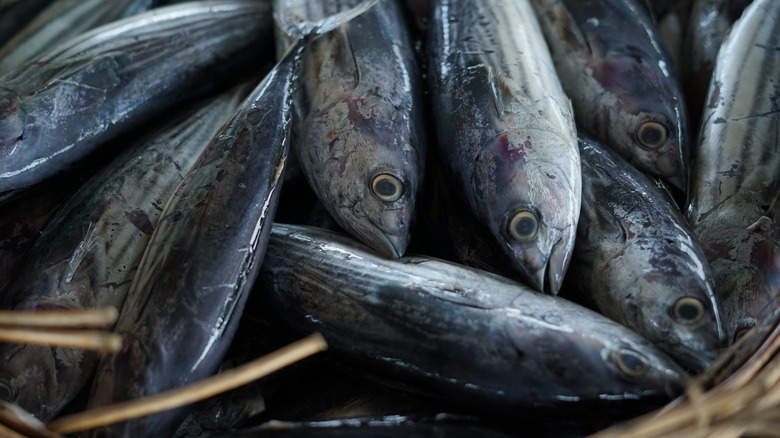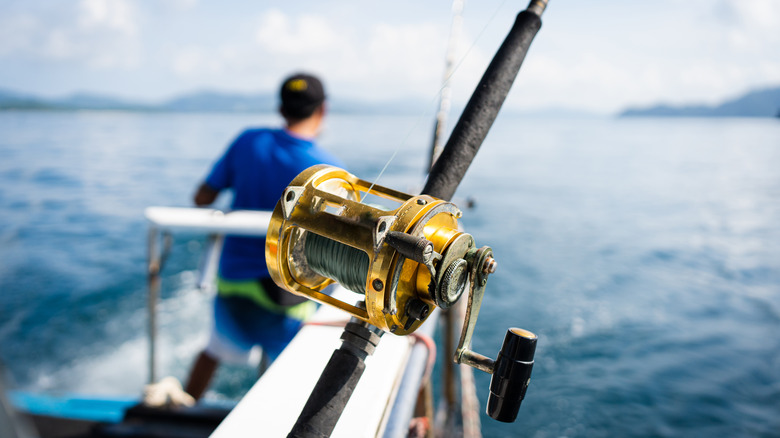Why Skipjack Is The Most Sustainable Tuna Species
According to the National Fisheries Institute, skipjack is one of the most frequently found species of tuna in canned and pouched products. What sets them apart from albacore, yellowfin, and other tuna species, however, is that they are particularly sustainable.
That is a somewhat strange way to focus on a subspecies of a general group of fish, though. It implies that skipjack is somehow genetically more disposed to being sustainable. Well, they are. Florida Sportsman explains that skipjack reaches a spawning age early and often spawns ever after. In short, they are the aquacultural equivalent of rabbits.
Currently, the skipjack's status with the World Wildlife Fund is one of the slightest concern. However, when Costco switched to selling sustainable skipjack tuna in 2014, Greenpeace admitted that this is fantastic news for both the seas and consumers who care about where their food comes from. So, out of all the seafood you could be consuming, you can feel the best about lathering your sandwich with the pulped remains of a skipjack.
It may not remain that way
Despite the sheer number of skipjack and the species' ability to breed, producers still have to exert themselves for it to remain a sustainable source of seafood. In 2021, Smithsonian Magazine explained that the demand for skipjack might push people to use methods that render the species less sustainable. According to them, the Pacific fishery depends on skipjack and yellowfin, just as it happened in the past in the Atlantic and Indian Oceans. Still, it will eventually collapse as well.
The most sustainable tuna fishing method is the pole and line, which essentially means fishing. However, purse seines, which use large nets to trap whole clusters of fish without necessarily considering the species, have become increasingly popular because they catch enough tuna to feed the demand.
Unfortunately, this method is at its worse when used with fish aggregating devices (FADs) that attract all kinds of sea creatures. That is part of the reason for the statistic that says most of the tuna you eat isn't actually tuna (per The Atlantic). However, Greenpeace notes that Costco now sells FAD-free tuna, and Ajinomoto details how they tagged skipjack so that they could better manage the species. That way, the issue of overfishing may not come to pass.

